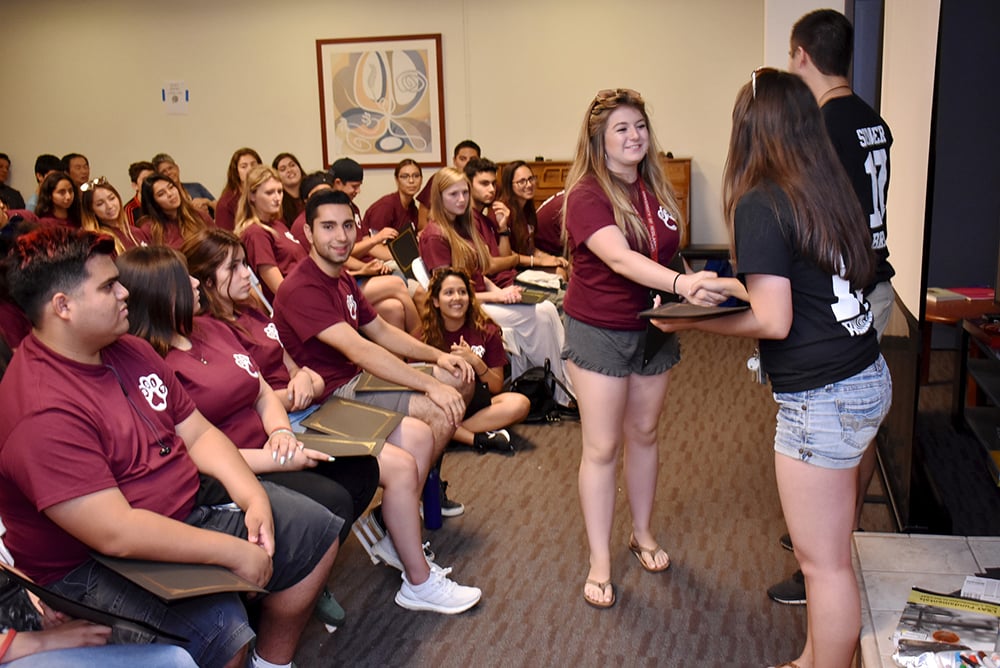Last Saturday, a group of entering University of Redlands students flashed big smiles and gave high fives at the completion of the Summer Bridge program, designed to provide first-generation college-bound and low-income students with additional orientation and targeted support.
“The program builds a sense of community and gives these students someone to go to with questions,” said Reggie Robles, associate director of Campus Diversity and Inclusion. “Students who are the first in their families to attend college don’t necessarily know what it means to live in a residence hall or have a roommate or be on a meal plan.”

While first-generation and low-income students are typically at high risk of failing to complete their degrees, Robles notes that, in contrast, U of R Summer Bridge students return for their second year at a rate of 90% and complete their bachelor’s degree in four years 88 to 92% of the time.
“Staff members from the U of R have presented nationally on the program,” said Robles. “Due to its success, other schools across the country are trying to replicate the experience.”
Thanks to the generous support of the Weil Family Foundation, the Knossos Foundation, and other donors, a total of 76 entering students completed Summer Bridge this July in two week-long residential sessions—the largest class ever, according to Robles. Since Summer Bridge was launched in 2002 by Associate Dean of Campus Diversity and Inclusion Leela MadhavaRau and Senior Associate Dean of Student Life Ruben Robles, close to 700 students have participated.
The program is set up so it opens with individual meetings with financial aid counselors, where students and their parents have a chance to ask questions, review procedures, and address any missing paperwork.
Over the next five days, students live on campus and attend daytime sessions providing exposure to the campus’s facilities and resources, as well as an overview of proven academic strategies. Evening programming is led by current first-generation U of R students who share their experiences and direct exercises to engage students and build leadership skills.
Demeturie Gogue, who recently joined the U of R as first-generation programs coordinator, noted that Summer Bridge is part of a full cycle of programs at the University aimed at helping first-generation and low-income students. These initiatives range from reaching out to underserved K-8 students with information and campus tours to student-led work with high-school sophomores and juniors on college readiness.
Another meaningful offering is U of R’s Book Lending Program, which has provided free access to books for current low-income or first-generation students for the past five years.
Robles and Gogue are especially proud of the first-generation peer-mentoring program, dubbed Students Together Empowering Peers (STEP), which provides much of the staffing for Summer Bridge sessions and involves some two dozen current U of R students.
“Even though it’s on students’ own time, becoming a STEP mentor is pretty competitive,” said Robles. “The mentors, all of whom have been through Summer Bridge themselves, receive rigorous training in the spring. Their enthusiasm about giving back is pretty remarkable.”

